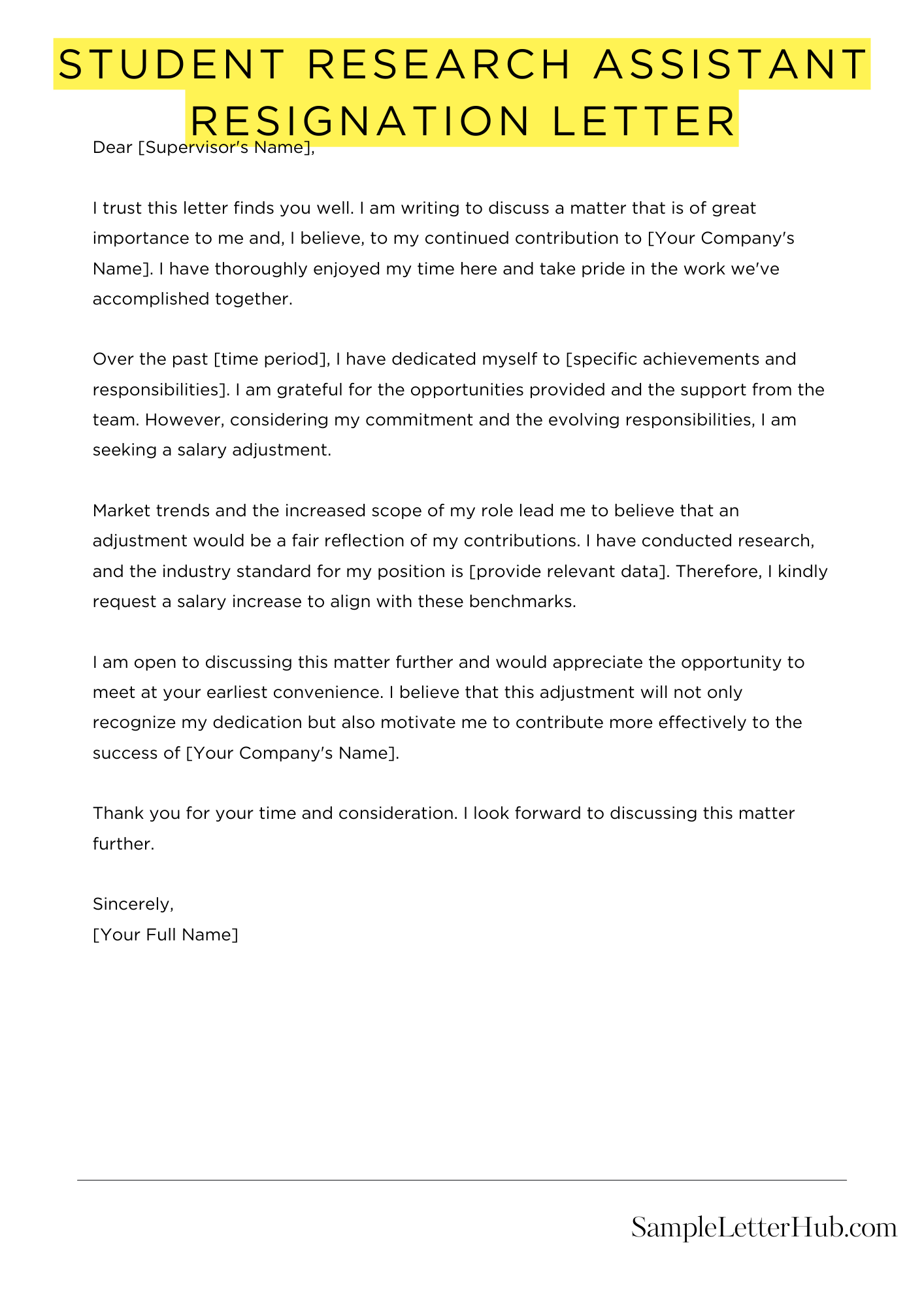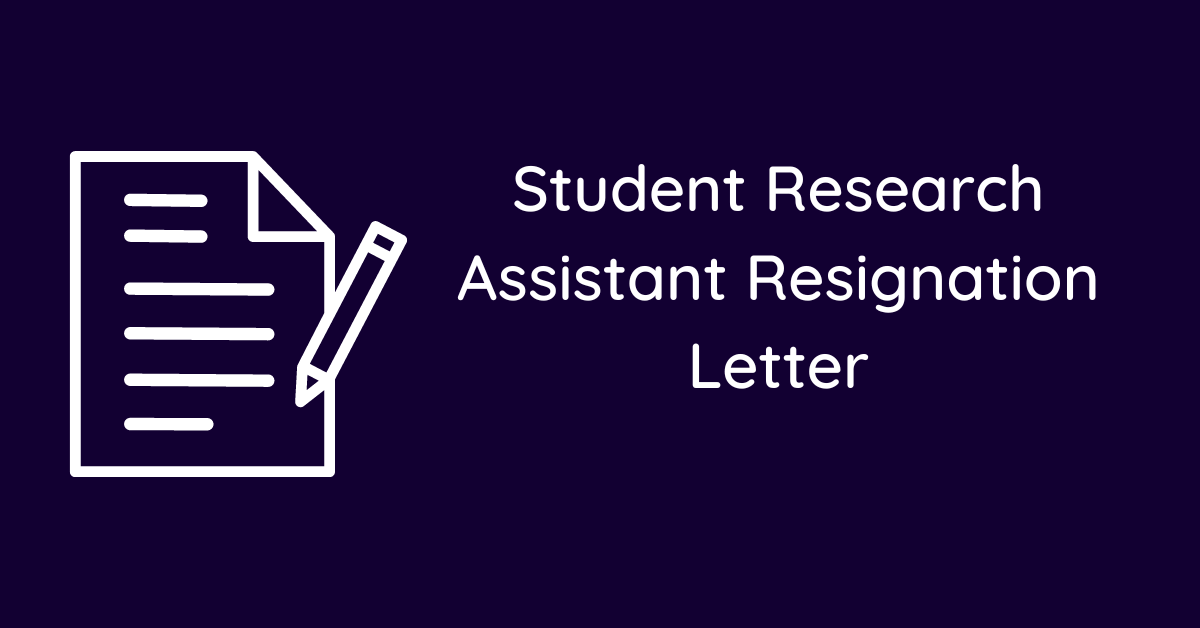Leaving a job can be a daunting task, but writing a clear and professional resignation letter is a great way to leave a lasting impression. When writing your letter, be sure to be polite and humble in your tone. Explain your decision to leave and express your gratitude for the opportunity to work as a student research assistant.
In this blog article, we will share an example of a student research assistant resignation letter with you. This letter can be used as a template to help you write your own letter. Be sure to tailor the letter to your specific situation and include all of the necessary information.
We hope this blog article has been helpful. If you have any questions, please feel free to leave a comment below.
Student Research Assistant Resignation Letter
Dear Professor [Professor’s Name],
Please accept this letter as formal notification of my resignation from my position as a Student Research Assistant in the [Department Name]. My last day of employment will be [Last Day of Employment].
I have enjoyed my time working as a Research Assistant under your supervision. I have gained valuable experience and knowledge that will be beneficial in my future endeavors.
I would like to express my gratitude for the opportunity to work on this project. I wish you and the research team all the best in the future.
Sincerely,
[Your Name]
Short Student Research Assistant Resignation Letter Sample
Please accept this letter as formal notification that I am resigning from my position as Student Research Assistant at [Company Name]. My last day of employment will be [Your Last Day]. Thank you for the opportunity to grow and learn during my time here. I wish you and the company continued success. I am happy to assist in the transition process to ensure a smooth handover of my responsibilities.
I wish you all the best with your student research assistant resignation letter.
When it’s time to say farewell, expressing your gratitude and best wishes can make the transition smoother:

How to Write a Student Research Assistant Resignation Letter
1. Start with a Formal Salutation
Begin your letter with a formal salutation, such as “Dear [Professor’s Name].”
2. Express Your Gratitude
Express your gratitude for the opportunity to work as a research assistant. Mention the specific experiences and skills you gained during your time in the position.
3. State Your Reason for Resigning
Clearly state your reason for resigning, whether it’s to pursue other opportunities, focus on your studies, or take a break. Be brief and professional.
4. Offer to Help with the Transition
Offer to assist with the transition process by training your replacement or providing documentation. This shows your commitment to the team and the project.
5. End with a Professional Closing
End your letter with a professional closing, such as “Sincerely,” followed by your typed name.
Student Research Assistant Resignation Letter: 6 FAQs
Resigning from a student research assistant position can be a daunting task. Here are six frequently asked questions and answers to help you navigate the process:
1. What should I include in my resignation letter?
Your resignation letter should include your name, position, the date you’re resigning, and your last day of work. You should also express your gratitude for the opportunity and briefly state your reason for leaving.
2. How formal should my resignation letter be?
The tone of your resignation letter should be professional and respectful. While it’s not necessary to be overly formal, you should avoid using slang or overly casual language.
3. How much notice should I give?
The amount of notice you give will depend on the terms of your employment. However, it’s generally considered good practice to give at least two weeks’ notice.
4. What if I’m leaving on bad terms?
Even if you’re leaving on bad terms, it’s important to remain professional in your resignation letter. Avoid making negative comments or accusations. Instead, focus on expressing your gratitude and stating your reason for leaving in a neutral way.
5. Should I offer to help with the transition?
Offering to help with the transition can show that you’re committed to leaving the position in a positive way. You can offer to train your replacement or help with any other tasks that need to be completed before you leave.
6. What if I’m not sure what to say in my resignation letter?
If you’re not sure what to say in your resignation letter, you can use a template or seek advice from a career counselor or mentor.
Before making the decision to resign from your job, it’s essential to consider the legal aspects:
Understanding your emotions after quitting your job is important. Explore why you might be feeling sad:
Related
- Resignation letter sample
- Forced resignation letter
- Resignation letter due to going abroad
- Resignation letter due to marriage
- Resignation letter due to other opportunity
- Resignation letter due to mistake

